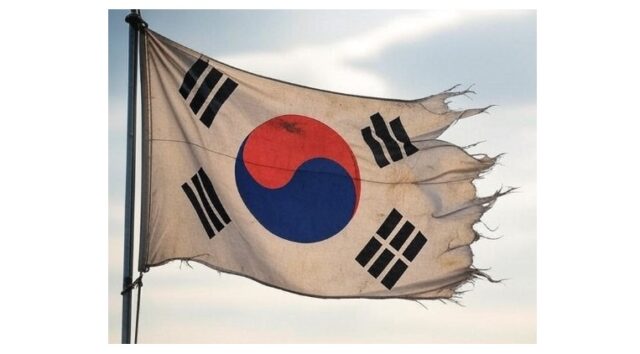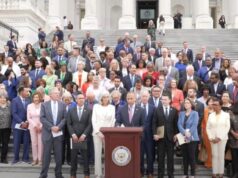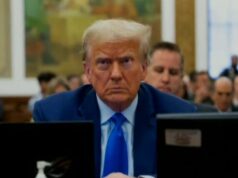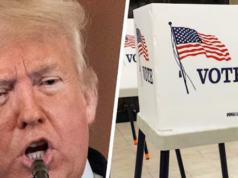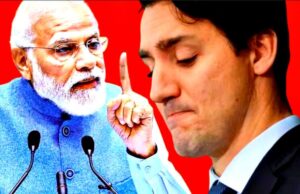Guest post from The Gateway Pundit’s trusted source on the ground in Korea.
The Republic of Korea is now caught in hybrid warfare. This is a conflict waged not only with force, but also through cyberattacks, legal manipulation, foreign interference, and political suppression.
The international discussion about former President Yoon Suk-yeol’s declaration of martial law on December 3, 2024, largely echoed Western media reports, labeling it an “authoritarian overreach” or an “unconstitutional power grab.” While such criticisms deserve attention, what many reports overlooked is that evidence of coordinated cyber offensives by North Korea and China had already been confirmed. This omission removes the essential security context necessary to understand Korea’s crisis.
However, when martial law was declared, most foreign press reduced it to a simple domestic power struggle. While the National Assembly’s swift decision to revoke martial law carries legal significance, ignoring the simultaneous external security threats distorts reality. For an allied nation facing joint North Korea–China cyber and political offensives, this is a matter that goes far beyond partisan conflict.
The impeachment of former President Yoon on April 4, 2025, was also carried out in haste. Critics argue that the Democratic Party has since weaponized legislative and judicial powers to dismantle Yoon’s influence. This undermines constitutional order and threatens the rule of law in one of Washington’s key Indo-Pacific allies.
—
Human Rights Crisis
From the author’s perspective, this is not simply the imprisonment of one politician. It sends a chilling message to the entire Korean people: “If you resist power, this is the fate you may face.” Ultimately, it means the collapse of freedom and the rule of law in the country.
South Korea’s structural vulnerabilities further worsen the crisis. With the dismantling of the National Intelligence Service’s counterespionage authority, foreign spy activities can no longer be properly investigated, and corporate trade secrets leaked abroad face virtually no legal response. Even when national secrets or technologies are sold to China, offenders cannot be prosecuted under espionage laws. And even if convictions occur, sentences are notoriously lenient compared to international standards, providing no deterrent effect. These systemic loopholes, combined with external threats, have made Korea more vulnerable — and ultimately explain why Yoon made the controversial but context-driven decision to declare martial law.
Internationally, such hybrid warfare tactics are not unique. Russia’s interference in Ukraine’s 2019 elections and China’s judicial pressure on Hong Kong in 2020 are representative examples.
—
Why the International Community Must Act
The situation in South Korea is not a mere domestic political crisis but a textbook case of hybrid warfare: adversaries exploiting internal divisions to dismantle an allied democratic system.
Therefore, the international community must reframe its perspective as follows:
Martial law must be evaluated within the broader context of foreign interference, not solely domestic politics.
The imprisonment and human rights violations against Yoon and Kim require immediate investigation by the international community.
Allied nations must support strengthening Korea’s counterespionage capacity and safeguarding constitutional governance.
This is about ensuring accountability within the rule of law, free from external coercion, and protecting liberty. Korea’s struggle is ultimately part of a larger battle for sovereignty, human rights, and stability across the Indo-Pacific.
—
South Korea Rapidly Sliding Toward Communism
What makes this crisis even more alarming is that it is not limited to cyberattacks, foreign interference, or judicial distortion. The domestic political landscape itself is shifting in a dangerous direction, amplifying the crisis.
Despite being a key Indo-Pacific ally, South Korea is rapidly sliding toward communism. Top political leaders and radical groups openly voice anti-American and pro-socialist rhetoric, while bias in education, media, and labor unions is becoming institutionalized. The ruling power is reinforcing a pro-China, anti-American line and institutionalizing it further.
This is not just a political trend but a transformation of the system. Communist narratives are seeping into Korea’s institutions, not through public consensus but through the ideological ambitions of those in power. Silence from the United States will amount to passively allowing Korea’s loss of freedom.
—
Prime Minister’s Brother’s Statement ― Shared by Education Minister Nominee
“Had the United States not intervened after liberation, Korea would have become a model socialist state.”
Education Minister nominee Choi Gyo-jin shared the post, adding, “I empathize and share.”
—
Democratic Party-Aligned Groups Mobilizing Anti-American Protests
—
Daejinyeon’s Intrusions into the U.S. Embassy and Military Bases ― Repeated Breaches Without Punishment
The radical Progressive University Students’ Union (Daejinyeon) is not merely a protest group. For years, it has carried out organized anti-American agitation, repeatedly storming the U.S. Embassy and U.S. military bases in Korea. This is beyond freedom of expression; it constitutes a direct and sustained threat to diplomatic and security interests.
Such repeated intrusions into U.S. diplomatic and military facilities constitute acts of sovereignty violation under international law. Yet, Korean courts have consistently released them on the grounds of “no flight risk” or handed down suspended sentences, effectively granting them impunity.
From the author’s perspective, this is not mere judicial leniency but evidence of collusion between leftist forces and a judicial cartel that protects radical anti-American activists. As a result, Daejinyeon continues its bold actions without fear of punishment, revealing how far-left anti-American movements are institutionally tolerated and even shielded in Korea.
—
Strategic Warning ― America Cannot Stay Silent
These incidents are not isolated. They reveal a dangerous ideological shift inside South Korea:
Pro-socialist narratives infiltrating government power
Radical movements attacking American symbols in the streets
The ruling party aligning with anti-American groups
Even more troubling is that the U.S. Embassy in Seoul has failed to fulfill its role, remaining passive while the alliance deteriorates on the ground.
The United States must not remain silent as Korea slips into communism.
Immediate and firm measures are needed to defend the alliance, protect U.S. interests, and support the Korean people resisting this radical turn.

